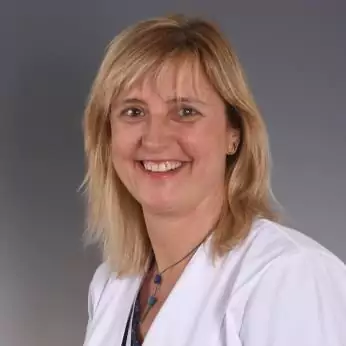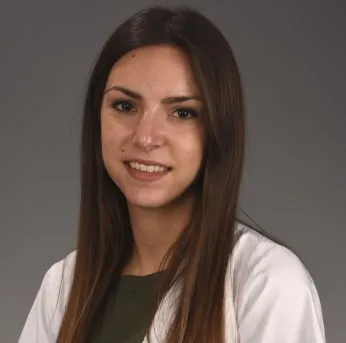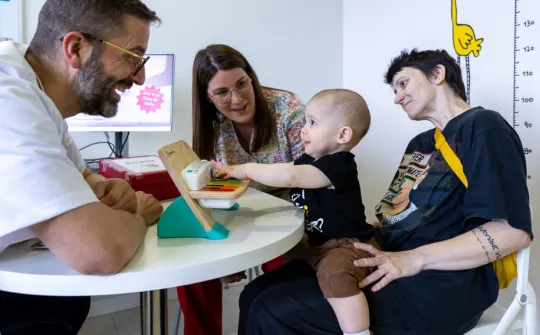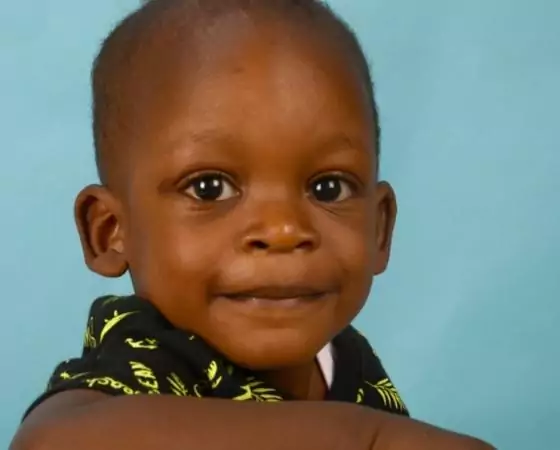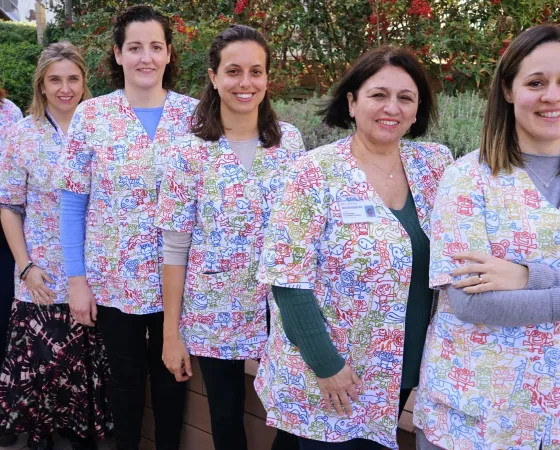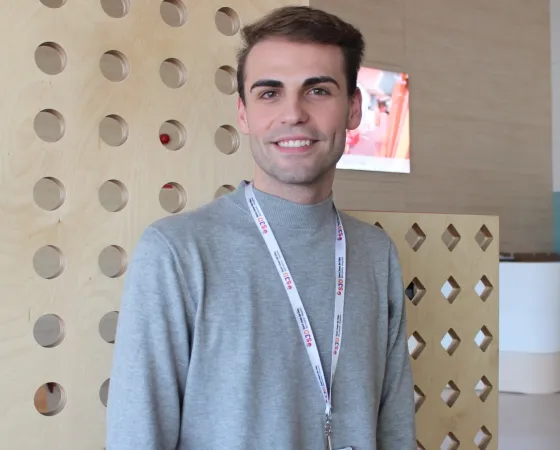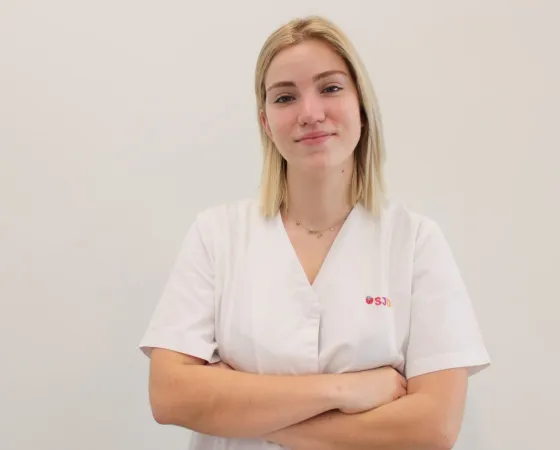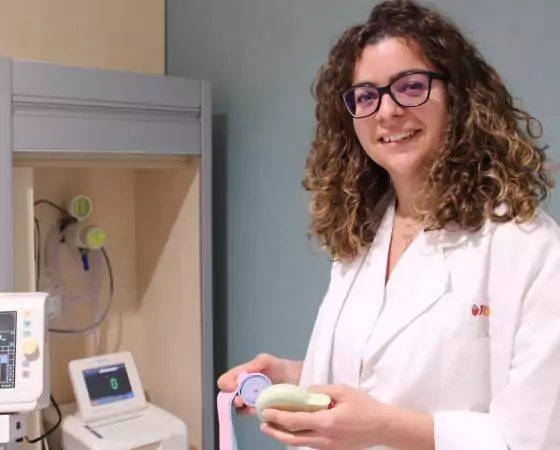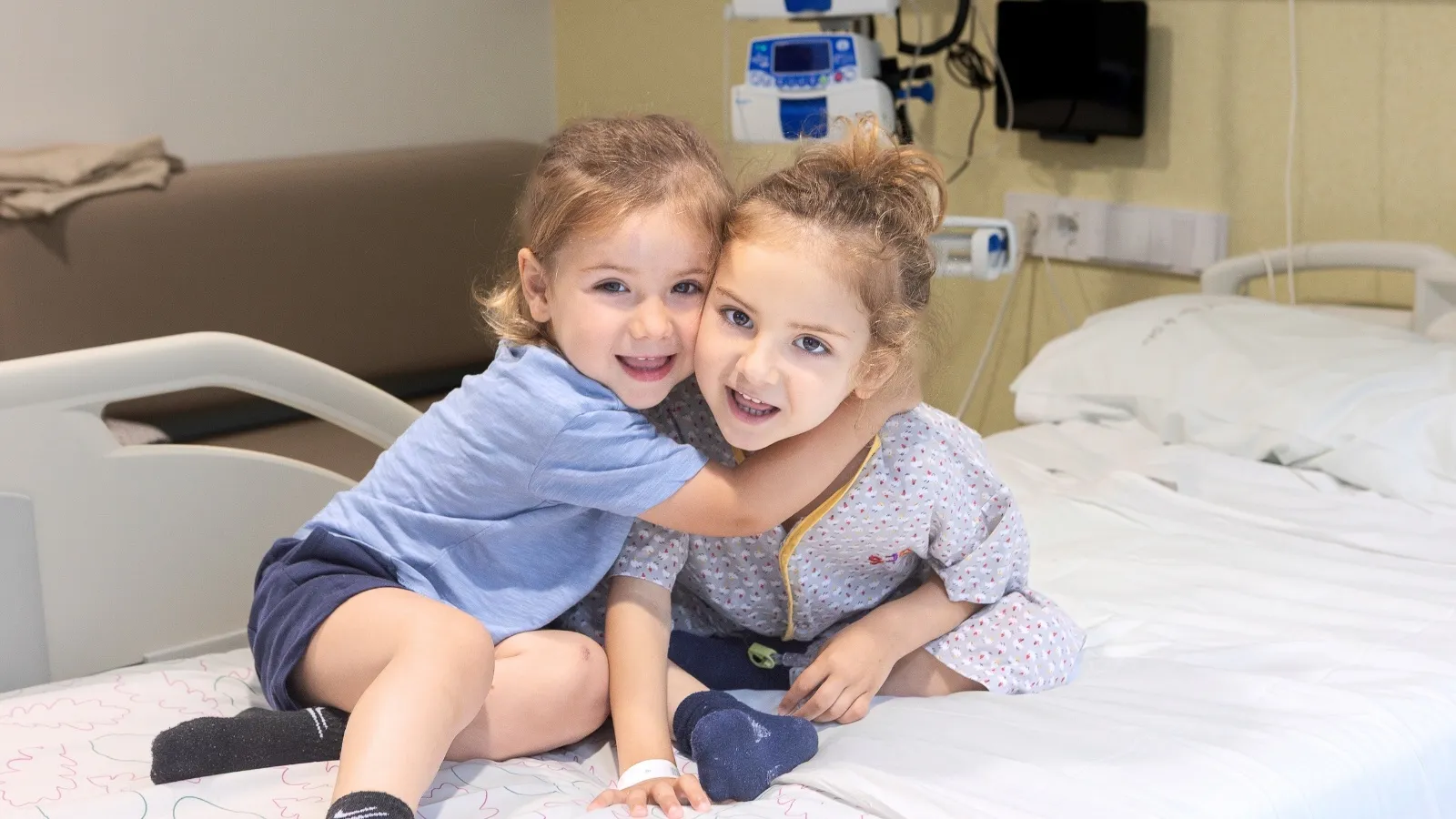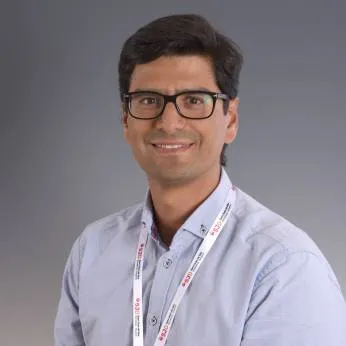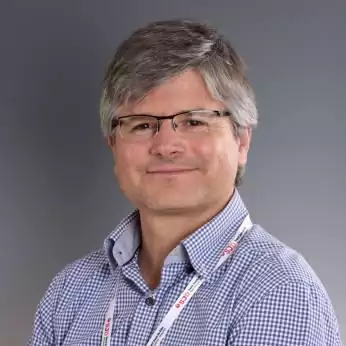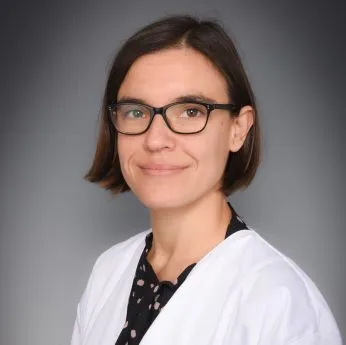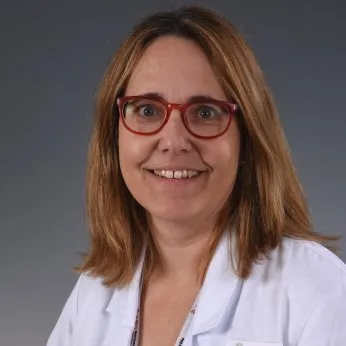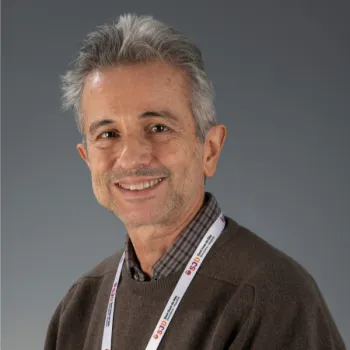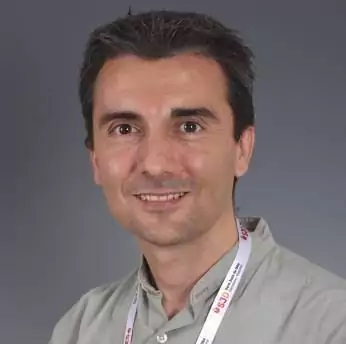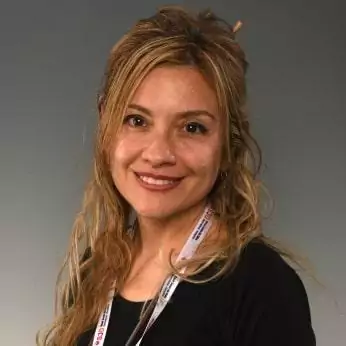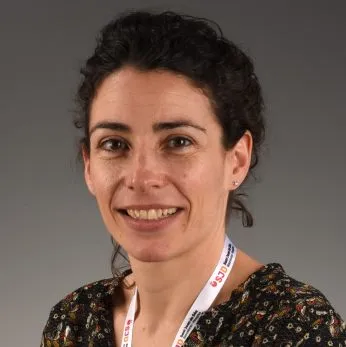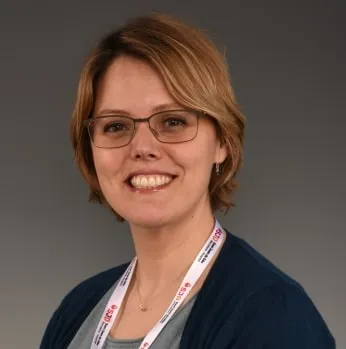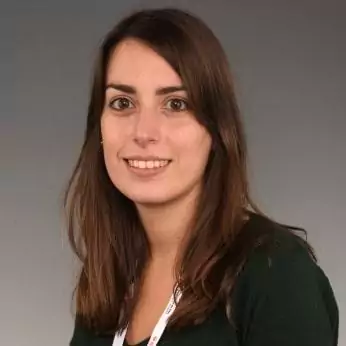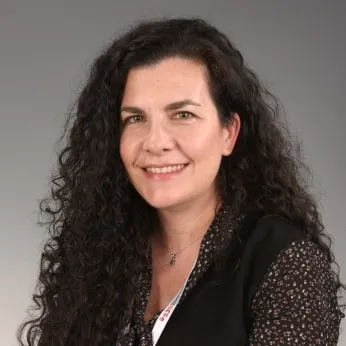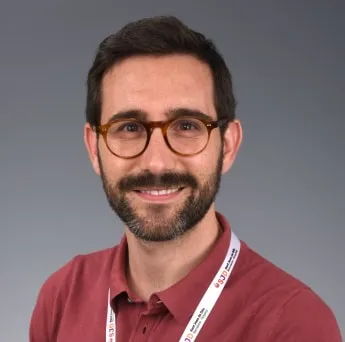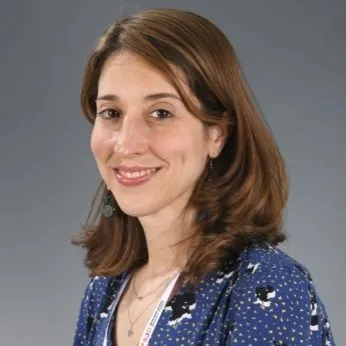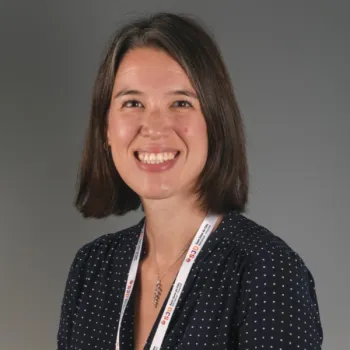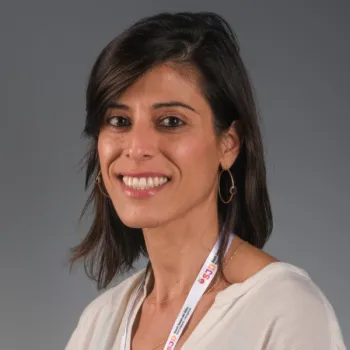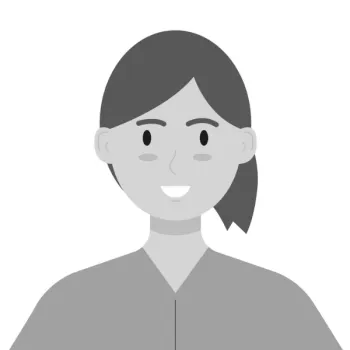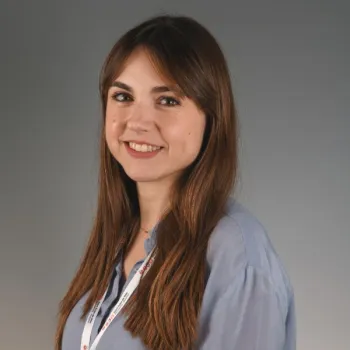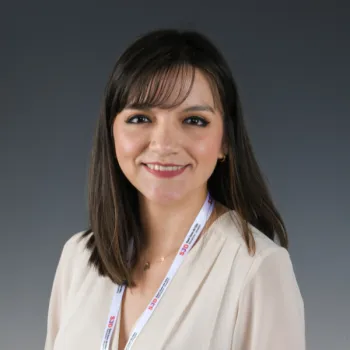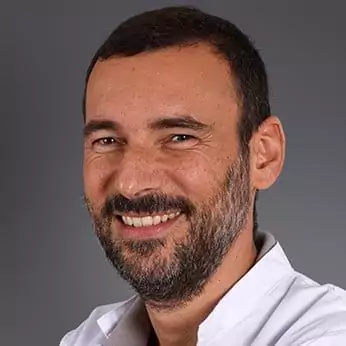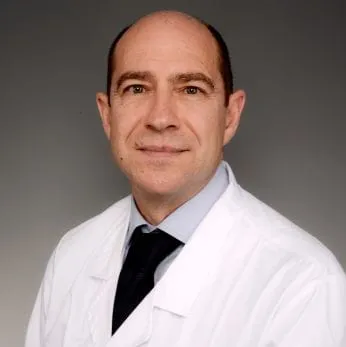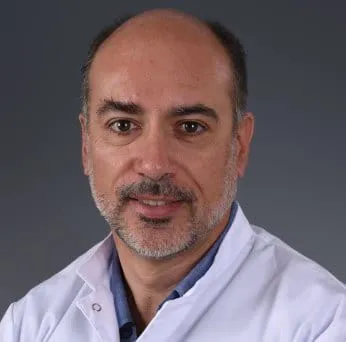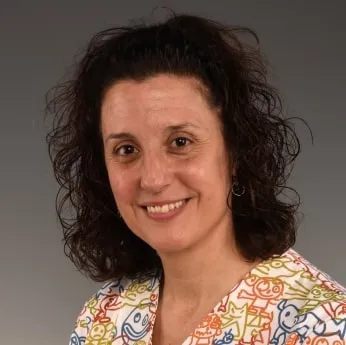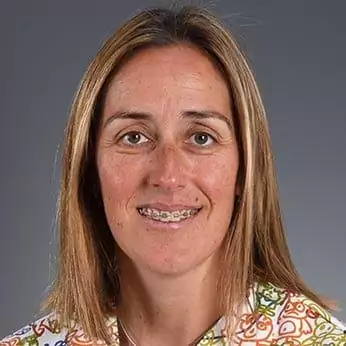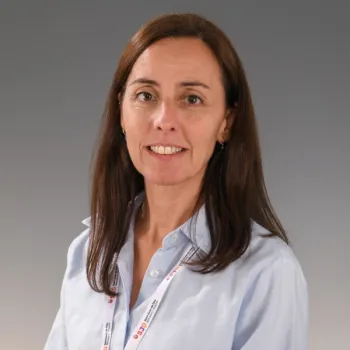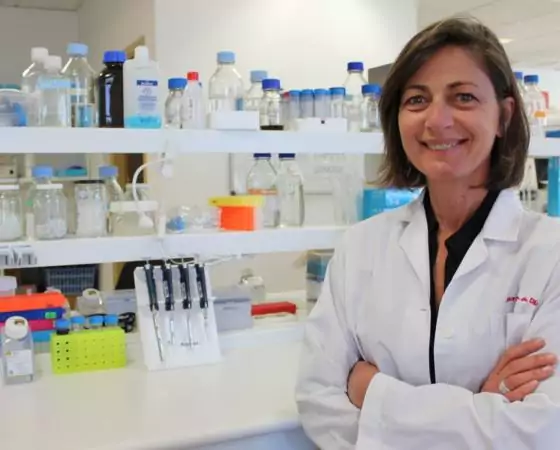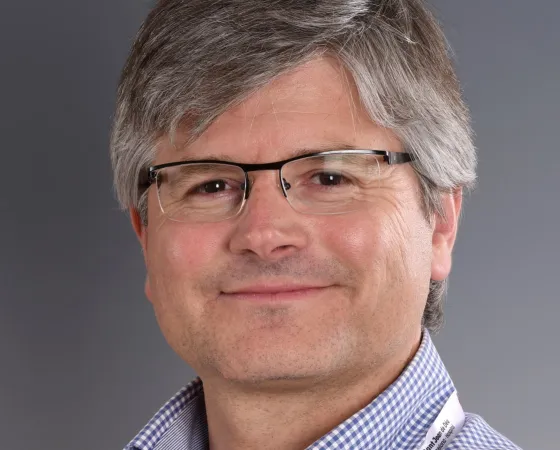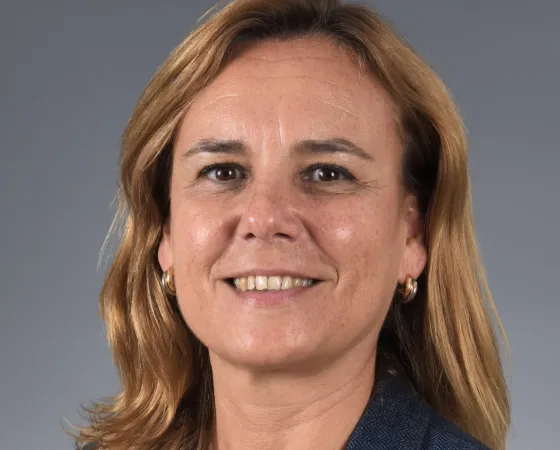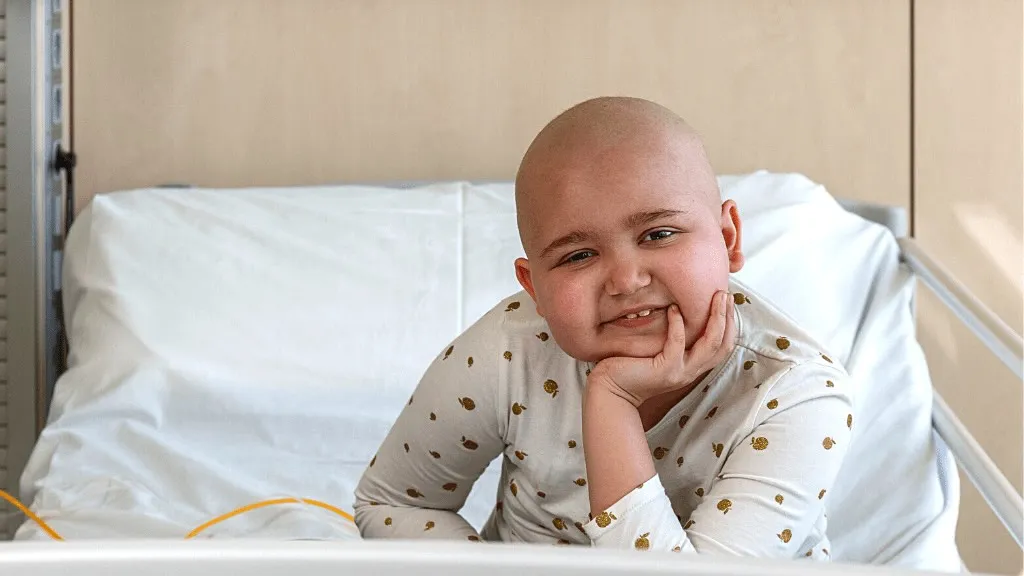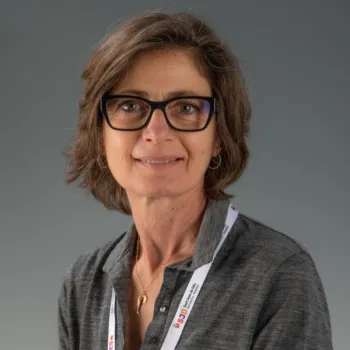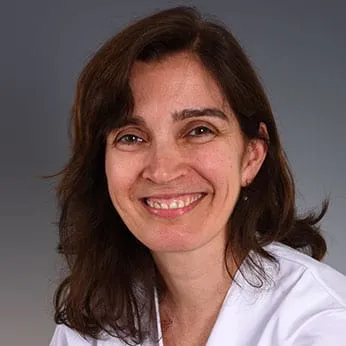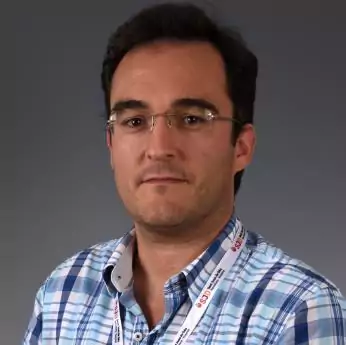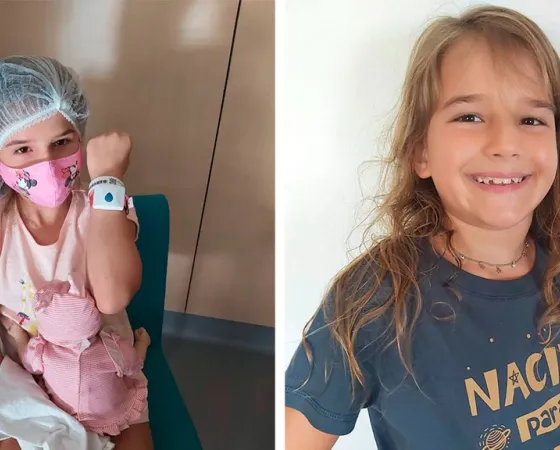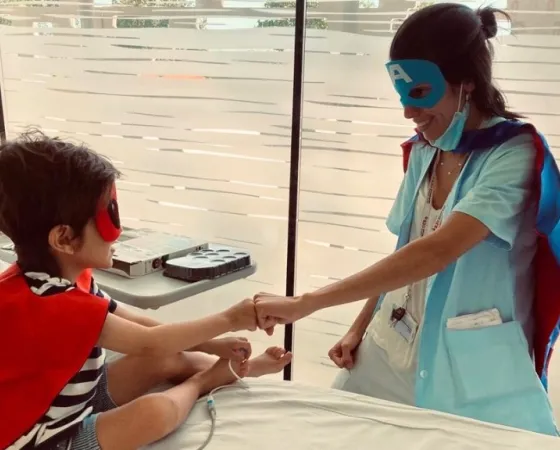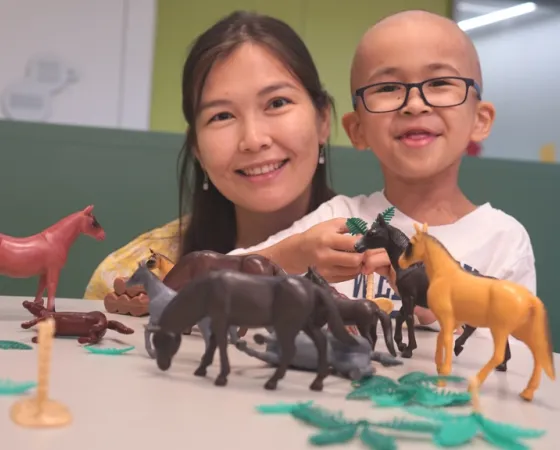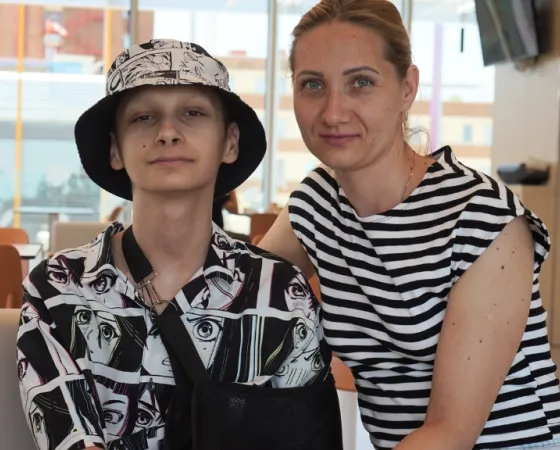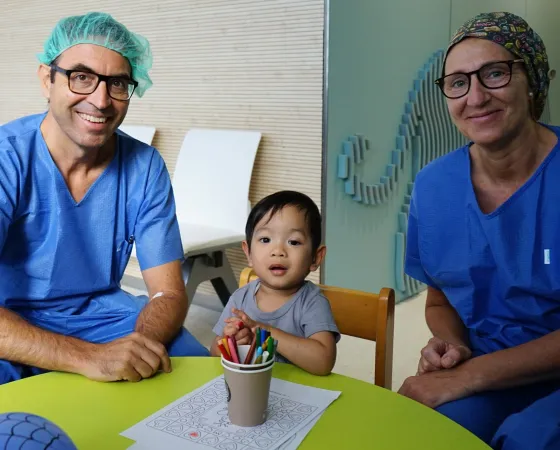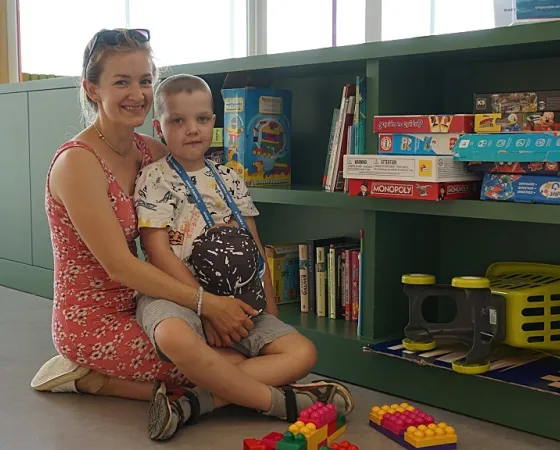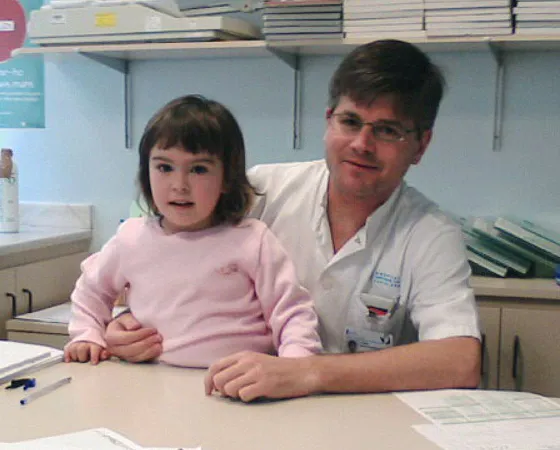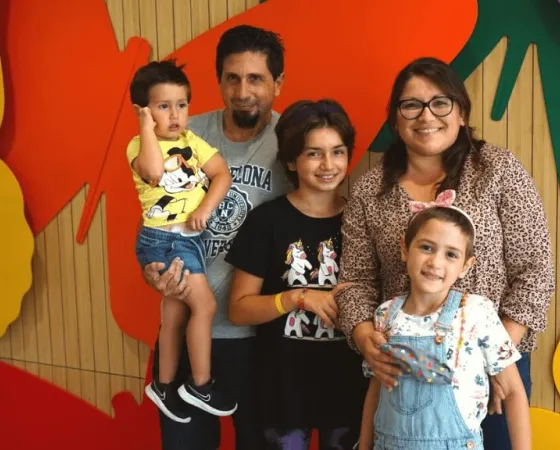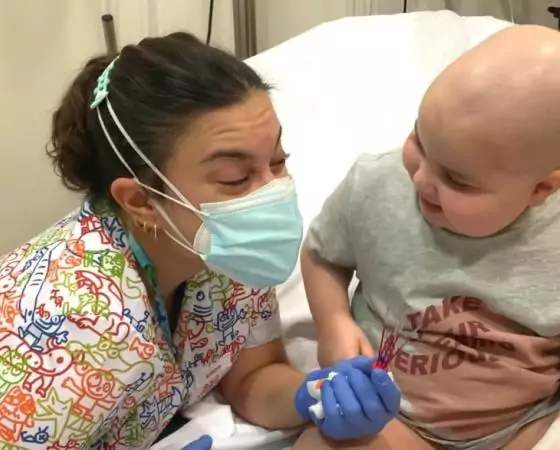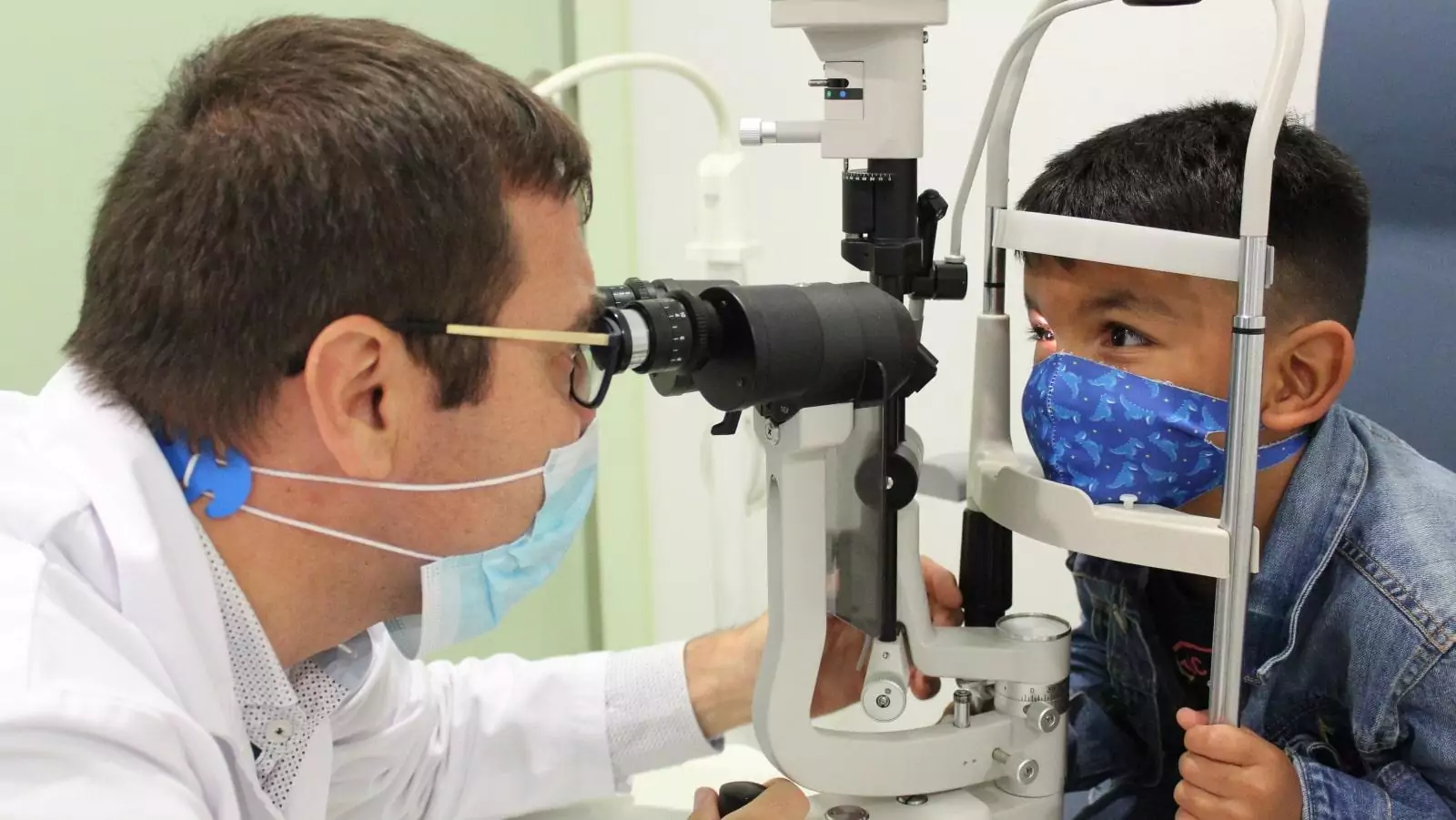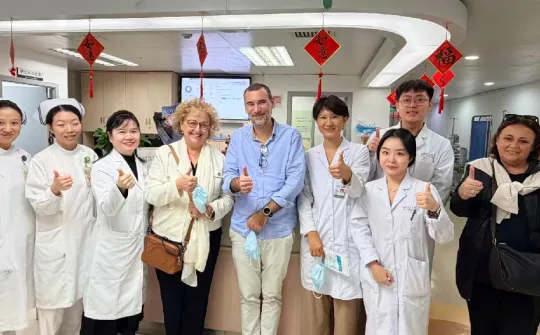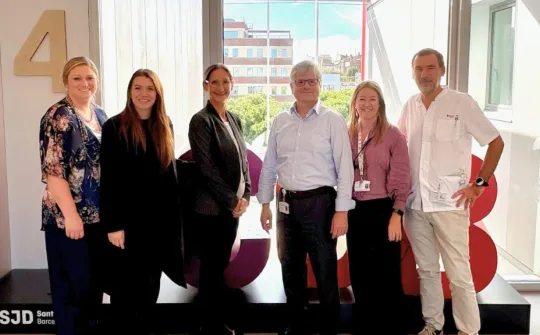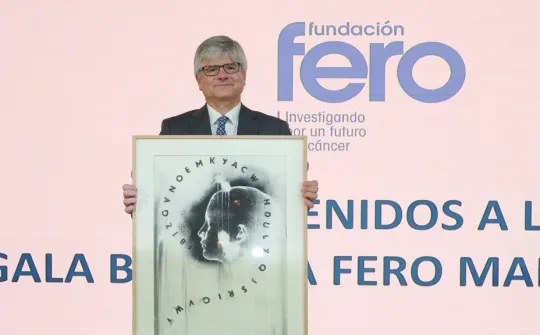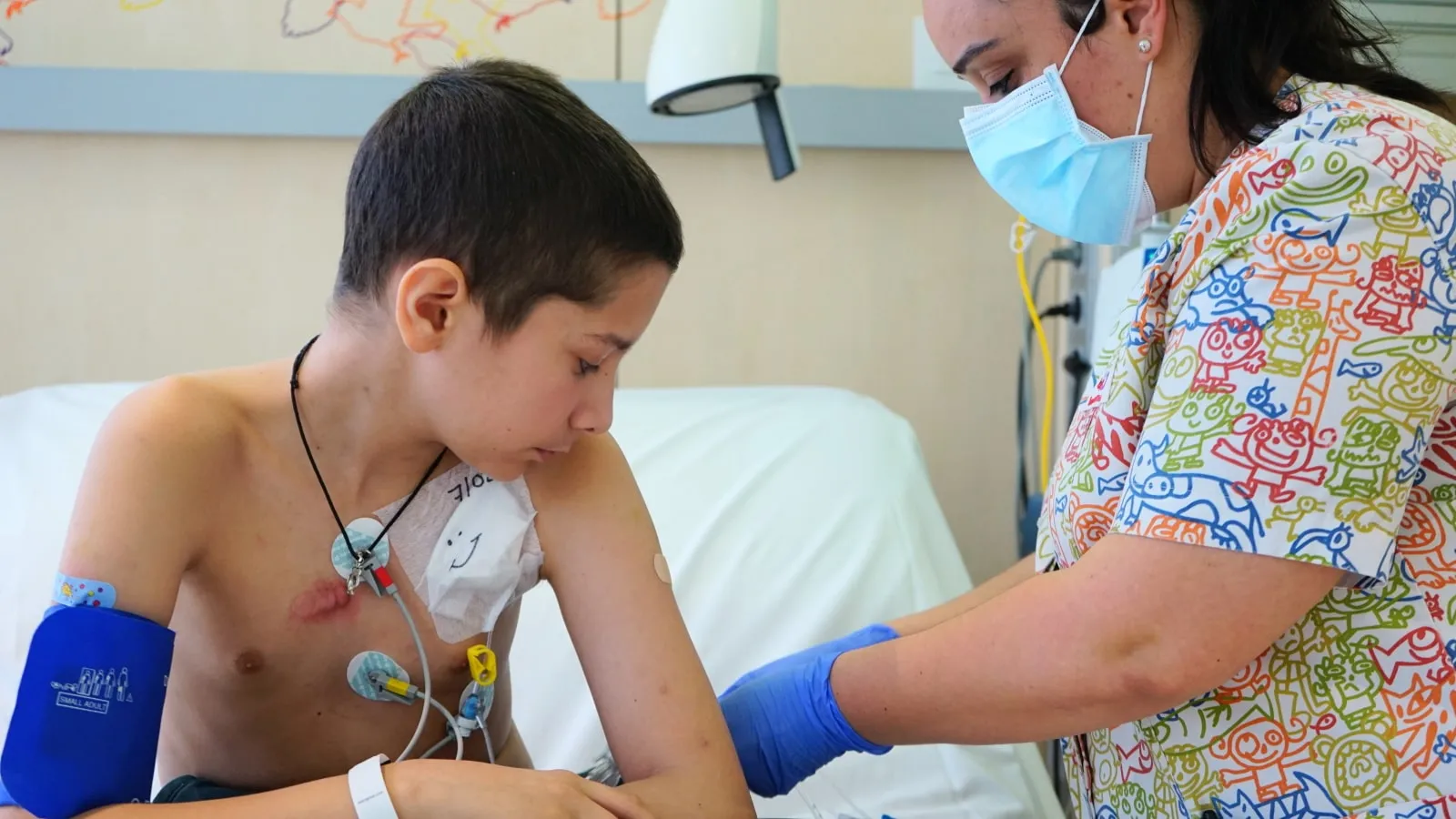
The Pediatric Cancer Center Barcelona at the SJD Barcelona Children's Hospital is a national and international reference centre for the provision of care and research into pediatric cancer.
The Oncology Department at the hospital is filled with specialists on treating all kinds of pediatric cancers: neuroblastoma, retinoblastoma, musculoskeletal tumours (sarcomas, including osteosarcoma and Ewing's sarcoma), brain tumours (including medulloblastoma, ependymoma, gliomas and other less frequent kinds), histiocytosis, kidney tumours (Wilms tumour and other less frequent kinds), leukemia (lymphoid and myeloid) and lymphomas.
Accreditations
The Oncology Department at the SJD Barcelona Children's Hospital has been officially recognised as a reference unit for the treatment of rare and complex diseases.
- European Commission (ERN): ERN PaedCan.
- Ministry of Health, Consumer Affairs and Social Welfare (CSUR): Neurocutaneous genetic syndromes.
Every year, we treat almost 2,000 children and adolescents with all types of pediatric cancer, of which, 300 are new patients at the hospital.
Why the SJD Barcelona Children's Hospital?
Pediatric cancer, more commonly known as childhood cancer, affects children, teenagers and young adults.
Childhood cancer is not the same as adult cancer
Developmental cancer, better known as childhood cancer, affects children, adolescents and young adults.
It originates during organ and tissue formation, in the process of human development. In the majority of cases, the causes of developmental cancers are unknown.
The incidence of childhood cancer is 1 case for every 200 cases of cancer in adults. This low incidence makes childhood cancer a rare disease.
Childhood cancer cannot be prevented, and so the early-diagnosis measures taken in adults are not applicable in children. Research is the only way to continue furthering knowledge of childhood cancer.
The causes, therapies and responses to treatment of children are unique to these types of cancer and very different to those of adults.
The cure and survival rates are also not the same. In general, childhood cancer is cured in 80% of cases, but in certain types of tumour there is still no hope of a cure.
Developmental cancer is the leading cause of death in Spain among children between 5 and 14 years of age, and the second leading cause of death among children between 15 and 24 years of age, after accidents.
We are working on developing new therapies and treatments that are more effective and less aggressive, so that young patients with cancer can benefit from more advanced treatments.
We use innovative therapies
We work on the development of new therapies and treatments that are more effective and less aggressive, so that young cancer patients can benefit from the most advanced treatments.
- We were European pioneers in the use of intra-arterial chemotherapy inpatients with retinoblastoma to avoid loss of the eye.
- We were the first centre in Europe to use anti-GD2 immunotherapy for the treatment of high risk neuroblastoma, which increases survival by around 20%.
- We have conducted an international clinical trial for patients with diffuse brainstem glioma, a cancer that is currently incurable.
- We have been pioneers in the introduction of CART immunotherapy for B-cell lymphoblastic leukaemia.
- We have implemented a Precision Oncology platform to identify therapeutic targets in refractory cases.
- We have developed and conducted a clinical trial with an oncolytic virus to treat retinoblastoma.
Our research aims to find new and better ways to diagnose and treat our patients. We have five different research groups and are involved in several clinical trials so that we can help find a treatment for incurable tumours.
At the vanguard of knowledge
We undertake research to improve the diagnosis and treatment of our patients. We have five research groups and are participating in a large number of clinical trials with the aim of finding a treatment for incurable tumours.
- We are one of the few centres in Europe with an exclusive paediatric tumour bank, which has great research potential.
- We are the first European centre to have developed an animal model of diffuse brainstem glioma.
- We systemically genetically sequence tumours in relapse.
- Our investigators have developed a nanofibre fabric for local treatment of cancer.
- We have 5 of our own approved clinical trials.
- We are studying genetic diversity within developmental tumours through the sequencing of individual cells from certain tumour types. This is a fundamental step in studying the evolution of the tumour's various cells and generating more knowledge of the complexity of these diseases.
- In 2015 we started a personalised medicine programme based on massive DNA sequencing carried out by the Centre Nacional d’Anàlisi Genòmica (CNAG - National Centre for Genomic Analysis).
- We have accreditation from the Innovative Therapies for Children with Cancer (ITCC) group, which allows us to access the most innovative treatments and to include our patients in pioneering clinical trials.
- Our research laboratory is fully integrated with the care team.
- We have a molecular biology laboratory that characterises all tumours in order to better classify them, make prognoses and seek targeted treatments.
- The Hopp-Kindertumorzentrum Heidelberg (KiTZ - Hopp Children's Cancer Center) has officially recognised our Status as 1st Level Molecular Diagnostics Facility for Low Grade Glioma in Children (LOGGIC) Core BioClinical Data Bank.
We offer comprehensive, interdisciplinary care for children and young people with cancer, always focusing on maintaining their quality of life.
We give special attention to families and to the overall well-being of the patient
We offer comprehensive interdisciplinary care to children and young people with cancer, focussing always on preserving the patient's quality of life.
- We have a team of psychologists and psycho-oncologists and social workers who help the patient and their family through various programmes.
- All painful treatment, such as bone marrow aspirations or lumbar punctures are performed under deep sedation in the Outpatient Surgery Unit (UCA) to avoid causing the patient unnecessary pain and anxiety.
- Wherever possible, we use outpatient treatment in our Day Hospital, so that the patient can return home each day. On some occasions, a home care team treats the patient at home.
- Since 2019, we have had the Integrative Paediatric Oncology Unit (UOPI), which aims to improve patients' experience and quality of life through all phases of their treatment, using acupuncture, essential oils and nutrition techniques.
We understand that every patient is different because every tumour is different.
We offer personalised medicine
We understand that every patient is different because every tumour is different
For this reason, we carry out studies and molecular diagnosis on every tumour we treat to determine its characteristics. In this way, we can predict the prognosis of the disease and the best approach for each patient, and also make sure they reach adulthood without sequelae.
- Our laboratory offers all techniques for molecular diagnosis and the prognosis of the disease in order to create a personalised treatment plan.
- Our mission is to cure our patients' cancers, but also to ensure that they develop as expected and reach adult age without sequelae. Among other lines of work, we use cryopreservation of oocytes (eggs) and sperm in children who undergo cancer treatment that might compromise their fertility, so that one day they can become parents.
We have all kinds of technical means to diagnose and treat our patients. In 2022, we launched the SJD Pediatric Cancer Center Barcelona, a new monographic healthcare centre for children and teenagers with cancer and their families.
Our facilities
We have access to all medical techniques to diagnose and treat our patients. The new Pediatric Cancer Center Barcelona, a new single-speciality centre for the benefit of children and adolescents with cancer and their families, is set to open in June 2022.
The centre will bring together the healthcare services aimed at children and adolescents with developmental cancer and their families in one single place, as well as spaces dedicated to research. It will be one of the leading international paediatric cancer centres.
The aim of the Pediatric Cancer Center Barcelona is to more effectively, efficiently and appropriately care for a large volume of patients, more than 400 new patients a year, which will make advances in research and treatment possible.
The centre will house, together in the same building, cutting-edge high-tech research laboratories for molecular and cellular diagnosis and prognosis, and will be capable of developing innovative, personalised advanced therapies.
Some data on the Pediatric Cancer Center Barcelona:
- Surface area 14.000 m2
- Floors 5
- Research space 30%
- Space for healthcare 70%
- Rooms 37
- Transplant chambers 8
- Boxes in the Day Hospital 26
- Outpatient consultation rooms 21
Our results
Eye preservation rate in advanced stages of retinoblastoma after 10 years
Survival in patients with low-grade glioma after 10 years
Cure rate in patients with localised Ewing sarcoma after 10 years
Cure rate in localised osteosarcomas after 10 years
of our patients with acute lymphoblastic leukaemia survive after 5 years
Patients with high-risk neuroblastoma treated at our centre who are disease-free after 3 years, in first or second complete remission
Specialisms and services
Related Units
We treat central nervous system tumours such as medulloblastoma and other embryonal tumours, high- and low-grade and diffuse K27M mutated midline gliomas, ependymoma, craniopharyngioma, germ cell tumour, and choroid plexus tumour.
Experts in pathologies such as neuroblastoma, retinoblastoma, osteosarcoma, Ewing's sarcoma, rhabdomyosarcoma, Wilms tumour, nephroblastoma, vascular tumour (hemangioma, venous and arterial malformation), hepatoblastoma and germ cell tumour.
Leukemias, lymphomas (non-Hodgkin and Hodgkin), histiocytosis and congenital spinal cord failure are the focus of our healthcare activity in this field.
We are specialists in hereditary cancer syndromes, such as neurocutaneous diseases (neurofibromatosis 1 and 2), tuberous sclerosis or syndromes such as Li-Fraumeni, among others.
Continuamos atendiendo a los pacientes que han superado la enfermedad y realizamos un diagnóstico precoz de complicaciones médicas asociadas a la enfermedad y al tratamiento recibido.
We are specialists in bone marrow translpants in children.
Diseases we treat
Treatments we offer
Integrative Pediatric Oncology
While adhering to strict scientific rigour and medical criteria, we combine patients’ therapeutic plans with complementary treatments that help reduce treatment toxicity and improve the quality of life of the children and teenagers with pediatric cancer.
Testing we conduct
Team
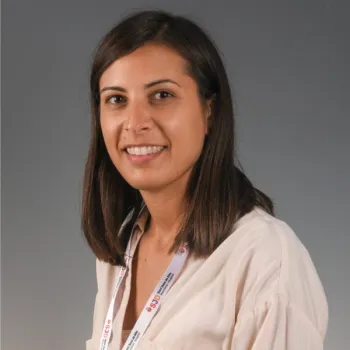

The Oncology Department boasts physicians from every pediatric specialism, meaning we can offer our patients comprehensive healthcare.
We also count on the support of the Associació de Familiars i Amics de Nens Oncològics de Catalunya [Family and Friends of Children with Cancer Catalonia] (AFANOC) thanks to nurse and clinical consultant Núria Carsí.
Research and clinical trials
Nowadays, only research can lead us towards providing better healthcare.
The research projects that we conduct aim to answer the questions posed by oncologists when they treat children and teenagers with pediatric cancer. This is known as translational research, as it aims to translate scientific progress into something usable for patients according to their needs as soon as possible.
Research in the Oncology Department is done according to the SJD Research Institute framework, where more than 50 professionals (from researchers to technicians) work in the Pediatric Cancer Research Lab, opened in 2003 and currently part of the SJD Pediatric Cancer Center Barcelona at the SJD Barcelona Children's Hospital.
We have access to a pediatric tumour bank, which is of utmost value in research and experimentation. In the laboratory, we use molecular and genomic technology to analyse the gene expression of various tumours, opening doors to new diagnostic and prognostic options for patients.
As our investigative team is wholly integrated into our care team, and with over 20 years of experience in translation research under our belts, our studies, clinical trials and cutting-edge treatments allow specialists to offer the safest and most efficient treatment possible to our patients.
Our research is characterised by:
- Use of preclinical models: Samples from our patients are processed in the lab to assess the effectiveness and safety of the new treatments, before the clinical phase.
- The pediatric tumour bank: This is a key piece in our research work, as the study of patient tumours is the first step in getting results.
- The Clinical Trials Department: We boast the first Clinical Trials Department focused on Pediatrics in all of Spain, with a huge volume of patients and trials.
Thanks to all of this, in the laboratory of Pediatric Cancer Research, we can offer precision diagnostic techniques and precision prognostics of our patients’ disease, all while working on developing more effective and less aggressive therapies for children with cancer.
Innovative diagnostic techniques allow us to identify therapeutic targets and offer personalised therapies.
Precision diagnosis
Innovative diagnostic techniques allow us to identify therapeutic targets and offer personalised therapies.
- Molecular diagnosis: We have a Molecular Oncology Laboratory specialising in the genetic characterisation of solid tumours which allows us to offer patients a more personalised and appropriate treatment based on the genetic abnormalities of their tumour.
- Diagnostic imaging: Our Diagnostic Imaging Area specialises in the study of paediatric oncological imaging biomarkers that enable us to have non-invasive anatomical, metabolic and functional information, thus increasing the precision of the initial diagnosis while also establishing patient prognosis and follow-up. We also have intraoperative magnetic resonance imaging in our surgical wing that allows us to improve surgical precision and safety.
- Nuclear medicine: This allows us to perform very important diagnostic tests in a set of paediatric oncological diseases. It is applied for the detection and determination of the extent of the disease, for monitoring or for the detection of relapses. Moreover, not only is it useful for diagnostic purposes, but it is also useful in the treatment of certain solid tumours.
We have a huge capacity to develop advanced technology in the field of pediatric oncology, which few other centres around the world are able to claim.
Advanced therapies
We have a high capability to develop advanced therapies in childhood oncology which are available in very few centres worldwide.
- CART-19 Immunotherapy: Modification of patient lymphocytes to destroy carcinogenic cells.
- Immunotherapy with Naxitamab, humanised anti-GD2 antibody: We have demonstrated that it is a possible treatment pathway for neuroblastoma and therefore we continue to research it.
- Oncolytic viruses: They are genetically-modified viruses to destroy the ocular tumour.
- "Theragnostics": It combines diagnosis and treatment with the use of radiologically-labelled drugs.
Our research work is spread over five research groups, consisting of over 50 professionals who work at the SJD Research Institute.
Main research groups
Our work is carried out in five research groups with more than 50 professionals who work at the Sant Joan de Déu Research Institute.
Visit the childhood cancer research laboratory at the SJD Barcelona Children's Hospital
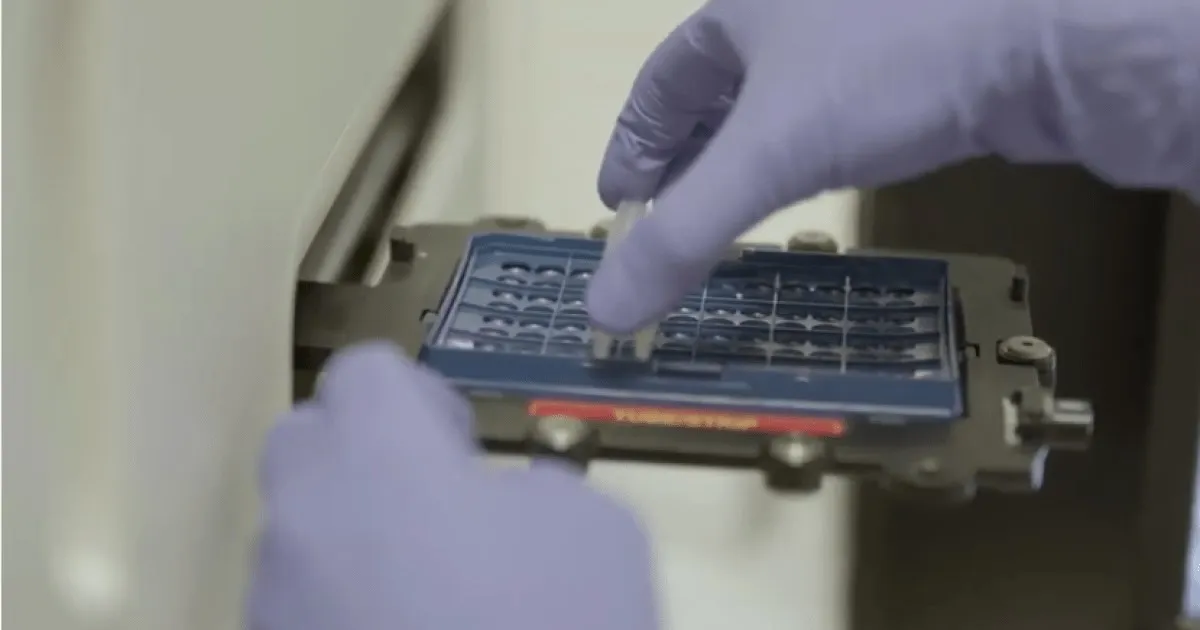
The best recognition comes from our patients
The majority of therapies and treatments in Oncology are not tested in the pediatric age group. As these are rare diseases, very few resources are designated to their study. There are more and more patients and families who promote fundraising initiatives for the research we do here at the SJD Barcelona Children's Hospital. Around 70% of our research budget comes from donations from patient families. Thanks to cancer research, around 80% of cases are cured. But for many children, there is still no medical solution.
Collaborate with us
Investigating team
The SJD Pediatric Cancer Centre Barcelona Charity Report
Key data for 2024 on research and healthcare programmes in the Oncology Department at the SJD Barcelona Children's Hospital.

Teaching
At the Pediatric Cancer Center Barcelona, we encourage specialist training in pediatric cancer. We are accredited as an international pediatric cancer education centre by the European School of Oncology and by the International Society of Oncology.
One of our greatest initiatives is the TELEO programme, an online training programme about oncology and pediatric hematology aimed at medical and nursing professionals in Latin America. The programme is completely free and accessible online or using the mobile app and belongs to the International Pediatric Forum (International Outreach Programme) at the SJD Barcelona Children's Hospital.
Plus, our team is closely connected to the educational offering at Sant Joan de Déu Formación in the Oncology and Hematology specialism, as well as teaching at the University of Barcelona, to which, as a University Hospital, the SJD Barcelona Children's Hospital is affiliated.
Patient stories
Psychosocial care, help and grants
When any child arrives in the Oncology Area of SJD Barcelona Children's Hospital, our team of psychologists and social workers performs a comprehensive assessment of their family situation so that an action plan can be drawn up. This plan includes guidance about the services and/or assistance (economic, work-related, social, accommodation, etc.) they can access to help them handle their son or daughter's illness, and proposes appropriate actions on the part of our professionals.
To prepare this plan, our professionals count on the support of the Hospital Amic and Hospitality programmes, among others, something that makes our hospital stand out. They also work with Escola La Magnòlia, the hospital's own school under the Department of Education of the Autonomous Government of Catalonia, to ensure continuity of education for inpatients in Catalonia. In some situations, they coordinate with social services in the family's place of residence to guarantee continuity of care to the family when they are at home, as well as with patient associations.
Lastly, our team is also present as normal life resumes, which can be a moment of crisis for families after a long time outside the school and work environment.
Psychosocial care team
